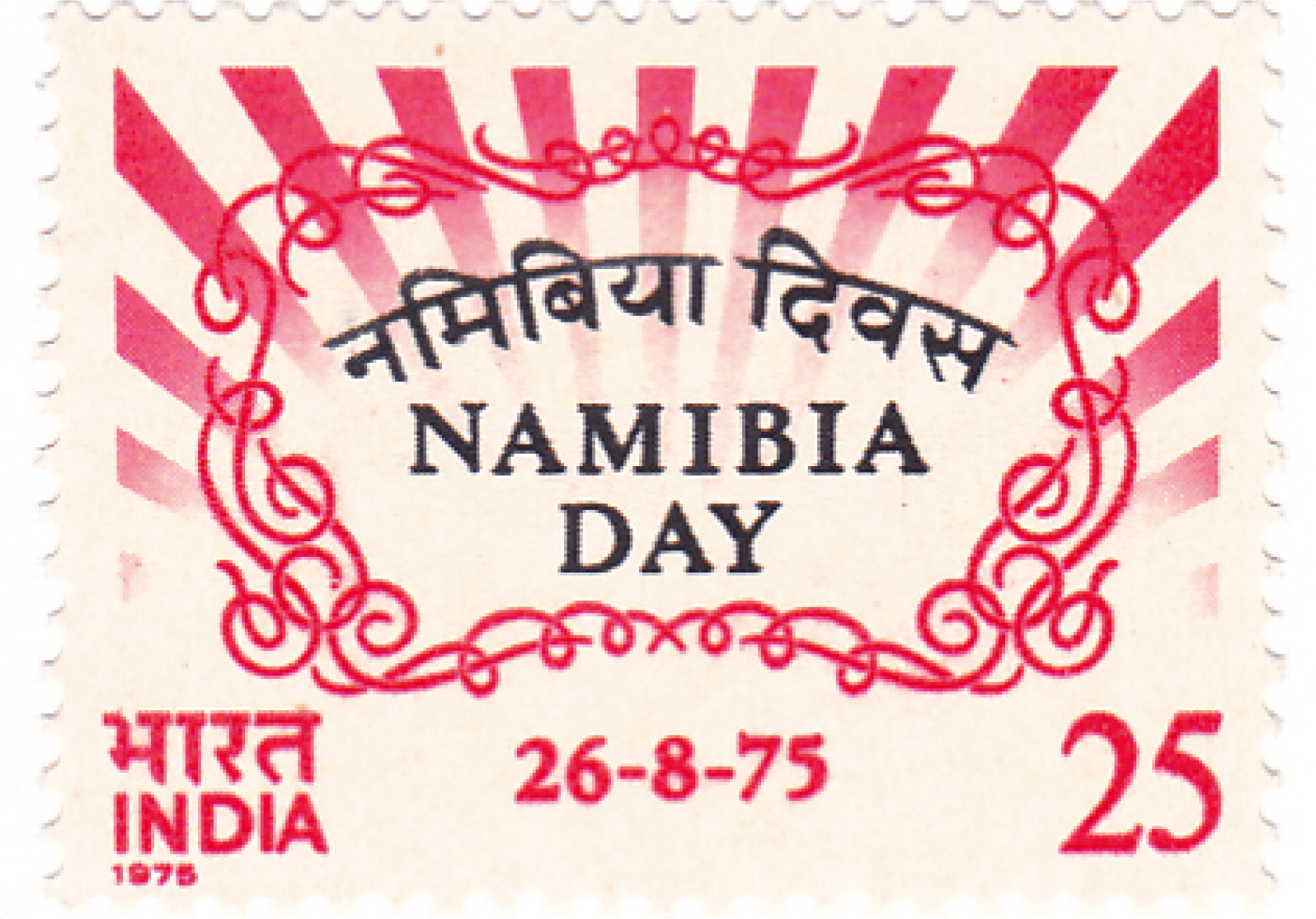1975, NAMIBIA DAY

In 1974, the UN General Assembly adopted a resolution declaring August 26 Namibia Day. This was the culmination of decades of difficult interactions between the UN, Namibia, South Africa, and other actors including India, over the status of the South-West Africa territory.
The issue of the Namibia Day stamp by India was a firm statement of its commitment to the independence of Namibia, and against colonialism and racism.
South Africa (SA) had been granted a temporary mandate to administer Namibia on behalf of the League of Nations, forerunner of the United Nations, following the defeat of its former colonial master Germany in the First World War.

Namibian Woman and child, 1970s. Photo: UN
“It has always been a mystery to me how men
can feel themselves honoured by the
humiliation of their fellow beings.”
“It has always been a mystery to me how men can feel themselves honoured by the humiliation of their fellow beings.”
– Mahatma Gandhi on South African Apartheid
The Namibian liberation movement, the South West Africa People’s Organisation (SWAPO) alerted the UN to the extension of SA’s racist apartheid system to the territory, and had petitioned for Namibian independence from the 1940s, culminating in the General Assembly revoking SA’s mandate, and placing Namibia under UN trusteeship in 1966. South Africa however refused to cooperate with the UN and continued to illegally occupy Namibia.

UN Human Rights Working Group listening to testimony by Reverend Marcus
Cooper of Namibia on South African human rights violations, 1969. Photo: UN

Samar Sen, Permanent Representative of India, leading a
discussion on the Namibia question, 1969. Photo: UN
India was a natural ally in Namibia’s struggle for freedom; informed by Mahatma Gandhi’s experience fighting the racial practices of South Africa towards its Indian minority, India had made the principle of equality and opposition to human rights violations, colonialism and racism cornerstones of its agenda at the UN. India raised the question of Namibian independence at the UN General Assembly as early as 1946, and SWAPO opened its first foreign embassy in New Delhi in 1964. India continued to contribute to various UN funds for the assistance of the Namibian people up to its independence.

Secretary-General Javier Perez De Cuellar (right) congratulates Sam Nujoma as the new President
of the Republic of Namibia, following the swearing-in ceremony, March 1990. Photo: UN
Namibia became a free country on 21 March 1990, through the determination and
struggle of the Namibian people for liberty, and the solidarity and support of countries
such as India, which kept the Namibia question firmly on the agenda of the United
Nations for 44 years.
 BACK TO GALLERY
BACK TO GALLERY
